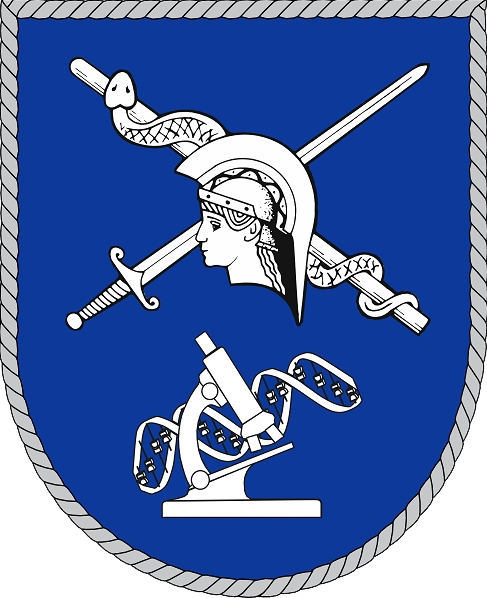Geschichte
The beginning
The development of the Bundeswehr Institute of Microbiology is closely linked to the history of the Bundeswehr Medical Academy in Munich. On 8 December 1959, the CBRN Defence Medical Instruction and Working Group was set up as part of the Bundeswehr Medical School, which was accommodated in the Prinz Luitpold Barracks in Munich. The group was only involved in teaching.
On 1 November 1966, the Departments Microbiology I and Microbiology II were established as part of the NBC Defence Medical Instruction and Working Group. These departments were led by Colonel Dr. Ackermann (VC) with five people working in the laboratory. For the first time independent research in the field biological defence was conducted in the Bundeswehr. In 1980, the laboratory group moved into new laboratories at the Ernst von Bergmann Barracks, where the institute is still located today.
From laboratory group to institute
In 1984, the laboratory group became the Institute of Microbiology. Directed by Colonel Dr. Ahrens (VC), the Institute's personnel grew to 25 persons. The Institute expanded the research and increased the scientific cooperation with civilian research institutes.
In 1994, Colonel Ernst-Jürgen Finke (MD) was appointed Institute Director. In the same year, the first conference on biosafety and biosecurity took place with only some international participation. In 1999, the Robert Koch Institute appointed one of the Institute’s laboratories as consultant laboratory for Tularaemia. In 2001, a biosafety level 3 laboratory was build.
The institute as an independent unit in the Bundeswehr
On 1 August 2002, the Bundeswehr Institute of Microbiology became an independent unit in the Bundeswehr with 65 peoples. In 2008, Colonel Lothar Zöller (MD) was appointed Institute Director. In 2009, the traditional conference became the international Medical Biodefense Conference and has since been held every two years. In 2010, the German Ministry of Education and Research selected institute as partner of the German Centre for Infection Research (DZIF). In the same year, the institute was appointed as consultant laboratory for brucellosis. In the same year, the institute established a rapidly deployable biological laboratory to expand its capabilities in the field of biological reconnaissance. In 2014, the institute was appointed as consultant laboratory for plague and in 2015 for tick-borne encephalitis.
Since 2019, Colonel Roman Wölfel (MD) is Institute Director. Currently, about 100 people work at the institute, including over 20 employees working in externally funded project.

